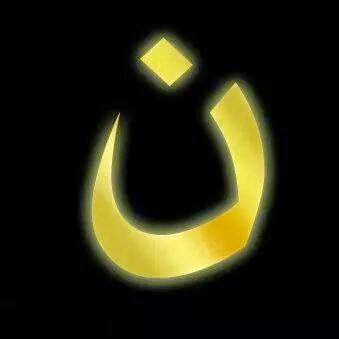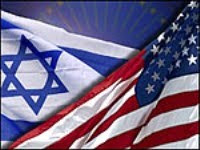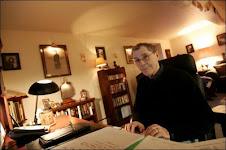http://garyfouse.blogspot.com/2015/06/the-farhud-in-iraq.html
"Reut Cohen chronicled her family’s horrifying experience during The Farhud, Nazi-inspired pogrom in Baghdad on the 1st day of Shavuot, June 1, 1941 in an Iconoclast post about her heritage, “The Farhud and my Family’s Sephardic/Mizrahi Israeli Heritage.” In our introduction to her post we referenced a 2014 post we did on the 73rd commemoration of the Farhud and referenced an effort to obtain Holocaust benefits for the victims of the Farhud.
We wrote:
On the occasion of the 73rd commemoration of the Farhud Ha’aretz published an article raising the question of whether it should be considered a Holocaust event, “Lawyers make case for giving Iraqi Jews Holocaust benefits”. There is ample evidence of Nazi involvement in the coup by Iraqi strongman Ali Rashid al-Gaylani, the Nazi Foreign ministry, and the German Ambassador to Iraq. Then there was the role of the Grand Mufti of Jerusalem Haj Amin al Husseini who was living in Baghdad after he was forced by British Palestinian Mandatory authorities to leave given his role in the Arab riots from 1936 to 1939. prior to the occurrence of the Farhud, for sanctuary in Berlin as Hitler’s house guest during WWII. Edwin Black chronicled the 1941 Baghdad pogrom and both Nazi and Hussein’s involvement in his 2010 book, The Farhud: Roots of the Arab-Nazi Alliance in the Holocaust.
Edwin Black
Black published an op ed in today’s edition of The Algemeiner about a special ceremony at the UN Headquarters commemorating the inauguration of International Farhud Day, Remembering Farhud Day and the Arab Pogroms. The opening stanza of his piece we thought would not be lost of Reut Cohen, Bat Ye’or and other victims of Arab pogroms in Israel and like Cohen and her family in the West:
While I was speaking to the packed room, a woman I did not know, sitting in the front row, slowly shook her tear-stained head in disbelief and muttered softly … barely audible … “I never thought I would hear these words in this building.”
The woman, it turns out, was of Iraqi Jewish ancestry. The building was the iconic United Nations Headquarters in Manhattan, astride the East River. The event was in a hall routinely used by the UN Security Council. The day was June 1, 2015. The occasion was the proclamation of “International Farhud Day” at the UN as a live global event broadcast by UN TV.
Farhud in an Arabic dialect means violent dispossession. The words I spoke that gripped the woman listening described in detail how the Mufti of Jerusalem, Haj Amin al-Husseini, leader of the Arab community in Mandate Palestine, organized a blood-curdling massacre by Nazi-allied Arabs against Baghdad’s peaceful Jewish community on June 1-2, 1941.The ensuing mass rape, beheading, murder, burning, and looting spree was the first step in a process that throughout the Arab world effectively ended 2,600 years of Jewish existence in those lands. Ultimately, some 850,000 to 900,000 Jews were systemically pauperized and made stateless in a coordinated forced exodus from the Arab world. Many Sephardic Jews consider the 1941 Farhud, which murdered and maimed hundreds, to be their Kristallnacht.
For the past 74 years was this constellation of tragedies commonly known and/or spoken of within the Jewish community. In fact, it took years of highly acrimonious, sometimes public, debate with and pressure on the United States Holocaust Memorial Museum (USHMM) ‑‑ only recently successful ‑‑ to even induce the USHMM to recognize either the atrocity that occurred, or the Mufti’s role in the killing, as a Holocaust-era persecution."
-------------------------------------------------------------------------------------------------------------------------
Comment:
We hear a lot about the so-called Nakhba, the "Catastrophe" that befell Palestinian refugees as a result of the 1948 war. Those who complain about that Nakhba don't want to talk about the Farhud and the fact that some 700,000 Jews were driven out of Arab lands during that time.














1 comment:
Tu quoque, tu quoque, and tu quoque to you too. Tu quoque on all your houses.
Post a Comment